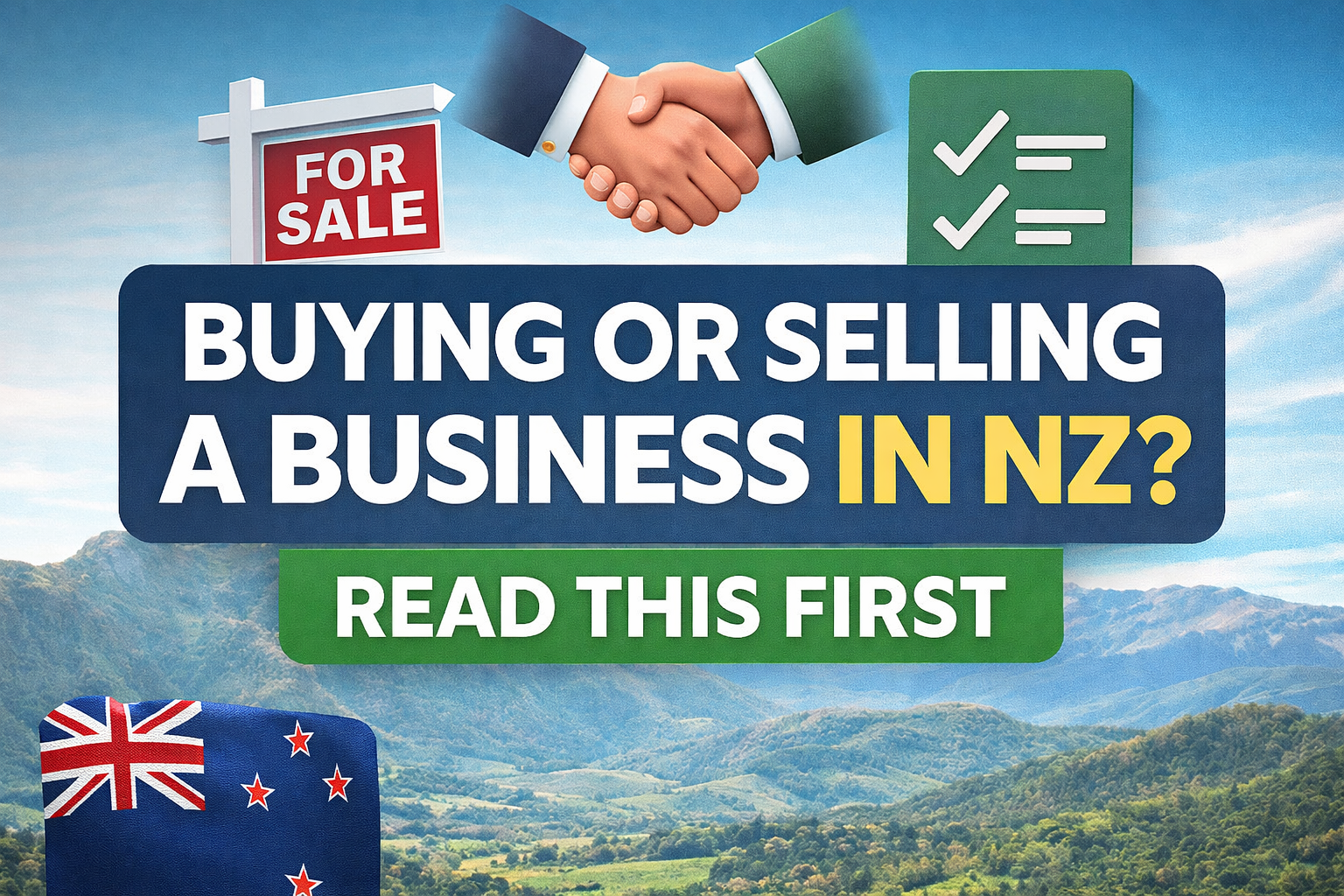Buying or Selling a Business? Read This First
Thinking About Buying or Selling a Business? Here’s What You Need to Know
If you’ve ever thought about buying or selling a business, you’ll know it’s not as simple as listing it online and waiting for someone to shake your hand. On this episode of About the Green, I teed it up with Hamish Dorrington from Kakapo Business Sales to break down what really matters when you’re stepping into a deal — whether you’re the buyer or the seller.
First Steps if You’re Looking to Buy
Hamish reckons too many people rush in without doing their homework. His advice? Start early and look at a bunch of businesses. Even if you’re just kicking tires, it helps you get a feel for how businesses are presented, how the financials look, and what stands out from industry to industry.
Get comfortable reading an information memorandum (IM), ask questions, and don’t be afraid to compare a few deals before getting serious. The more you see, the easier it is to spot what’s good value and what’s not.
Red Flags That Scare Buyers Off
The biggest killer? Declining turnover with rising costs. If the numbers are trending the wrong way, buyers back off quick.
But Hamish also said it often comes down to trust. Buyers form impressions fast, if you’re hiding stuff or glossing over the ugly bits, they’ll assume there’s more skeletons in the closet. Be upfront about issues, bottlenecks, or risks. Trying to spin only the positives usually backfires.
How Most Deals Are Funded
Most buyers will need some level of finance, either through a bank or non-bank lender, and usually bring some of their own cash for a deposit.
That said, being a “no finance” buyer (i.e. all cash or equity ready to go) can be a massive advantage in a competitive sale. Hamish has seen vendors take a lower offer with no finance conditions over a higher offer tied up with bank approvals, just to avoid delays and uncertainty.
Is It a Buyers’ or Sellers’ Market?
Right now, Hamish says it’s definitely a sellers’ market. Rate cuts have brought confidence back, buyers are flooding in, and businesses in certain sectors are picking up again.
That said, industries like hospitality are still doing it tough, with disposable income getting sucked into higher mortgage repayments instead of dining out. It’s not one-size-fits-all, but overall, the momentum is on the seller’s side.
Don’t Underestimate the Emotional Side
Selling a business isn’t just a transaction, for many owners it’s their life’s work. Emotions can complicate things fast, especially if it’s a first-time buyer on the other side of the table too.
That’s why brokers like Hamish exist, to manage the emotional side, keep both parties focused, and make sure the deal doesn’t derail when things get personal.
How to Get a Business Ready to Sell
If you’re thinking about selling, Hamish’s golden rule is: prepare early.
Clean financials: Have your accounts tidy and transparent.
Modern systems: Even switching from an old-school accounting system to Xero can add serious value, buyers love clean, live reporting.
Tackle the weak spots: If there are issues that could scare a buyer, fix them or be ready to explain them upfront.
Sometimes, the little stuff, like upgraded systems or clearly documented processes, can add 20% to your sale price just by building trust.
Key Takeaways From the Round
If you’re buying: look at lots of businesses and learn how to read the numbers.
If you’re selling: prepare early, be upfront, and modernize your systems.
Finance matters, but trust matters more, be transparent and organised.
Emotions are real, but they can’t drive the deal.
